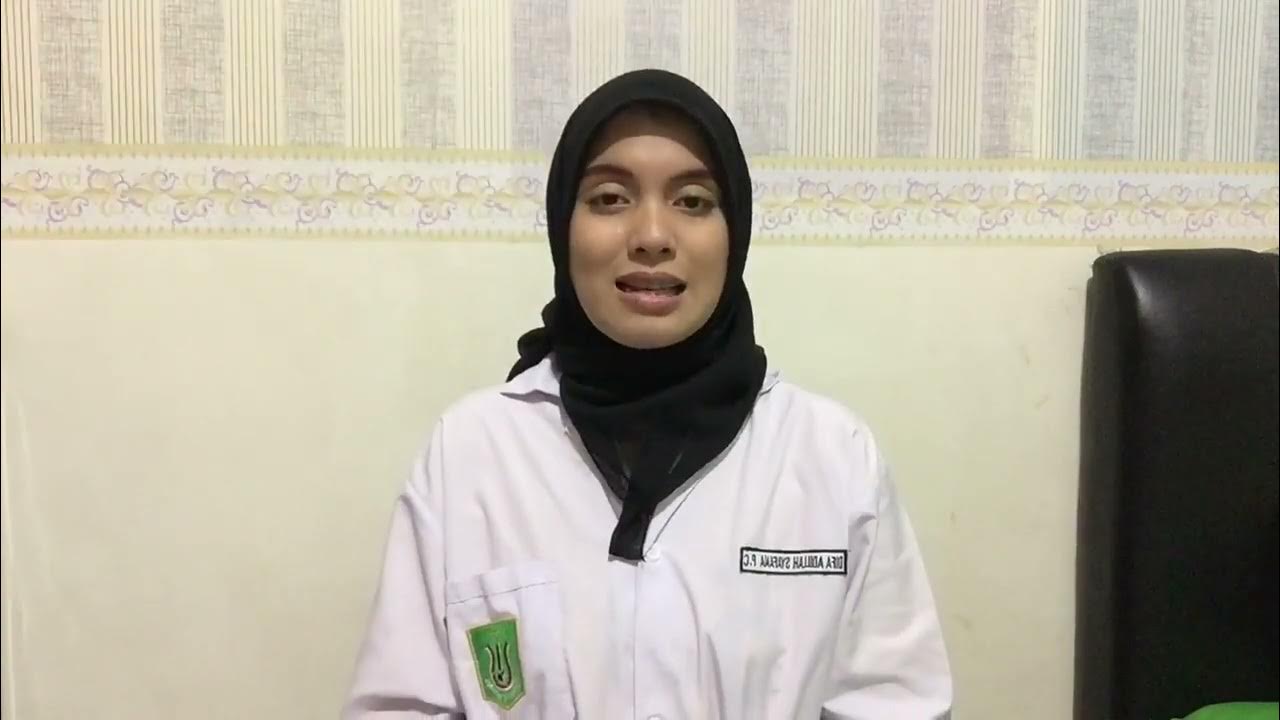Cara Kerja Pil KB Hormonal #animasidolewak #animasiorgantubuh
Summary
TLDRIn this conversation, a person is discussing the effects of estrogen, particularly the one derived from birth control pills, with the hypothalamus. The dialogue explores how the release of hormones like gonadotropin-releasing hormone (GnRH), luteinizing hormone (LH), and follicle-stimulating hormone (FSH) is impacted by the estrogen levels from the pill. This hormonal imbalance could interfere with fertility by affecting the ovulation process. The conversation concludes with the acknowledgment that the individual is postponing pregnancy by using birth control pills.
Takeaways
- 😀 Estrogen is a key hormone that affects various bodily functions, including brain activity.
- 😀 The conversation mentions the role of estrogen in the body, particularly its effect on the hypothalamus.
- 😀 The hypothalamus releases GnRH (gonadotropin-releasing hormone) in response to estrogen levels.
- 😀 Low GnRH levels can result in decreased release of LH (luteinizing hormone) and FSH (follicle-stimulating hormone).
- 😀 Low LH and FSH can disrupt the process of egg maturation in the ovaries, affecting fertility.
- 😀 The conversation suggests that estrogen, when sourced from birth control pills (pilkab), is being discussed in relation to fertility and hormone regulation.
- 😀 The speaker confirms that estrogen from birth control pills can temporarily disrupt normal hormonal cycles, including the release of key fertility hormones.
- 😀 The individual in the conversation is using birth control to delay pregnancy, which is why they are managing their estrogen levels.
- 😀 The hypothalamus provides a detailed explanation about the physiological impact of estrogen and related hormones.
- 😀 The script highlights the connection between hormones and fertility, focusing on the role of estrogen in regulating reproductive processes.
Q & A
What is the main topic discussed in the conversation?
-The main topic is the impact of estrogen from birth control pills on hormonal regulation and fertility, specifically how it affects the hypothalamus, pituitary gland, and ovaries.
What role does the hypothalamus play in hormone regulation?
-The hypothalamus is responsible for releasing gonadotropin-releasing hormone (GnRH), which regulates the release of other hormones such as LH (luteinizing hormone) and FSH (follicle-stimulating hormone) from the pituitary gland.
How does estrogen from birth control pills affect GnRH release?
-Estrogen from birth control pills can reduce the release of GnRH from the hypothalamus, leading to a decrease in the secretion of LH and FSH from the pituitary gland.
What happens when there is less LH and FSH released?
-When less LH and FSH are released, the ovaries are not properly stimulated to prepare eggs for ovulation, which can interfere with fertility.
How does this affect fertility?
-The reduced release of LH and FSH can prevent the normal ovulation process, making it difficult for someone to conceive while using birth control pills.
What is the effect of birth control pills on the menstrual cycle?
-Birth control pills work by introducing synthetic estrogen, which can disrupt the natural hormonal signals that regulate the menstrual cycle, often preventing ovulation and making pregnancy less likely.
Can the hypothalamus control fertility directly?
-Yes, the hypothalamus plays a direct role in regulating fertility by controlling the release of hormones that influence ovulation and the function of the ovaries.
What does 'pil KB' refer to in the conversation?
-'Pil KB' refers to birth control pills, specifically in the Indonesian context. These pills contain synthetic hormones, including estrogen, to prevent pregnancy.
Why does the conversation mention 'delaying pregnancy'?
-The conversation mentions delaying pregnancy because birth control pills are used to temporarily prevent pregnancy by regulating hormone levels and inhibiting ovulation.
What can happen if someone stops taking birth control pills?
-If someone stops taking birth control pills, their natural hormonal balance may gradually return, and normal ovulation can resume, potentially leading to pregnancy if they are trying to conceive.
Outlines

This section is available to paid users only. Please upgrade to access this part.
Upgrade NowMindmap

This section is available to paid users only. Please upgrade to access this part.
Upgrade NowKeywords

This section is available to paid users only. Please upgrade to access this part.
Upgrade NowHighlights

This section is available to paid users only. Please upgrade to access this part.
Upgrade NowTranscripts

This section is available to paid users only. Please upgrade to access this part.
Upgrade NowBrowse More Related Video

Fisiologi Hormon Siklus Mensturasi - FSH, Estrogen, LH, Progesteron

pengambilan keputusan dalam kebidanan

Video Edukasi Kontrasepsi Hormonal ( Pil Kb )

Sistem Reproduksi: Regulasi Reproduksi Pria | Alternatifa

Percakapan/Konseling KB Antara Bidan Dan Pasien | Tugas KB Dan Pelayanan Kontrasepsi

BIO 2006 Ch 22 The Hormonal Control of the Female Reproductive Functions
5.0 / 5 (0 votes)